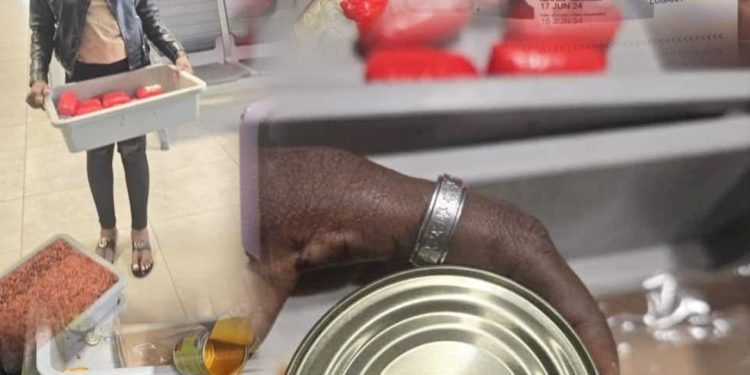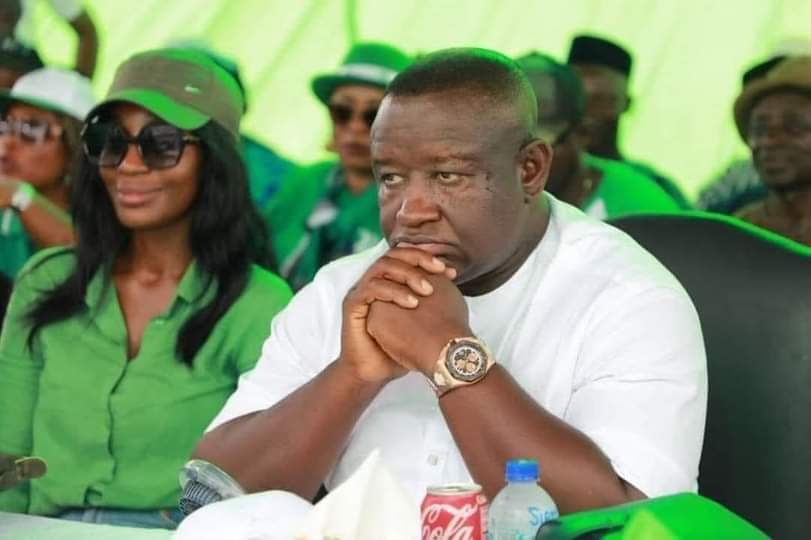By Albert David
The arrest of Miriam Shamane, a Zambian national intercepted at Freetown International Airport on November 16, 2025, with suspected cocaine concealed in her luggage, is not an isolated incident. It is a symptom of a far deeper malaise, a disturbing reality in which Sierra Leone has been transformed into a hub for international narcotics trafficking.
At the center of this troubling narrative stands Jos Leijdekkers, alias Omar Sheriff, a Dutch citizen and Europe’s most wanted drug kingpin. His name reverberates across intelligence circles, yet in Sierra Leone, he is shielded and protected by the very institutions entrusted with safeguarding the nation. Allegations of complicity stretch from the presidency to the police and military, painting a grim picture of a state captured by the narcotics trade.
Sierra Leone, once striving to rebuild its reputation after years of civil strife, now finds itself branded as a powerhouse for cocaine transshipment and distribution. The country’s strategic coastal location has been weaponized by traffickers, turning its ports and airports into gateways for narcotics flowing into Europe and beyond.
This transformation is not accidental. It is the result of deliberate shielding of criminal networks by political elites who, rather than defending the constitution, have betrayed it. The complicity of state institutions has created a parallel economy, one where cocaine, not legitimate trade, dictates power and wealth.
The consequences are devastating. Sierra Leone’s youthful generation is being consumed by addiction, a slow-motion genocide facilitated by government negligence and corruption. Communities are collapsing under the weight of drug dependency, while families watch helplessly as their children are lost to narcotics.
This is not merely a public health crisis, it is a national security emergency. A nation whose institutions are weakened and compromised cannot defend itself against external threats, nor can it attract foreign investment. Investors recoil from a country where the rule of law is undermined by the very leaders sworn to uphold it.
While ordinary Sierra Leoneans grapple with poverty and addiction, political elites live in extravagant luxury, their lifestyles financed by complicity in the narcotics trade. Diplomatic passports, once symbols of national pride, have become tools of trafficking, granting immunity to couriers who move cocaine across borders with impunity.
This is not governance, it is constitutional betrayal. It is a disservice to the people, a dismantling of democracy, and a reckless gamble with Sierra Leone’s future.
The international community watches with growing alarm. Sierra Leone’s reputation, painstakingly rebuilt after years of conflict, is now being shredded by its entanglement in the narcotics trade. What should be a nation of resilience and promise is instead portrayed as a narco-state, undermining diplomatic relations and foreign partnerships.
The arrest of Miriam Shamane should not be dismissed as routine. It is a warning flare, a reminder that Sierra Leone’s institutions are failing in their most basic duty: to protect the nation and its people.
Accountability is required. Shielding drug lords like Jos Leijdekkers is not only unethical but profoundly undemocratic. It is a betrayal of the constitution, a betrayal of the youth, and a betrayal of Sierra Leone’s future.
The people deserve better. The world demands better. And history will judge harshly those who chose complicity over courage.











